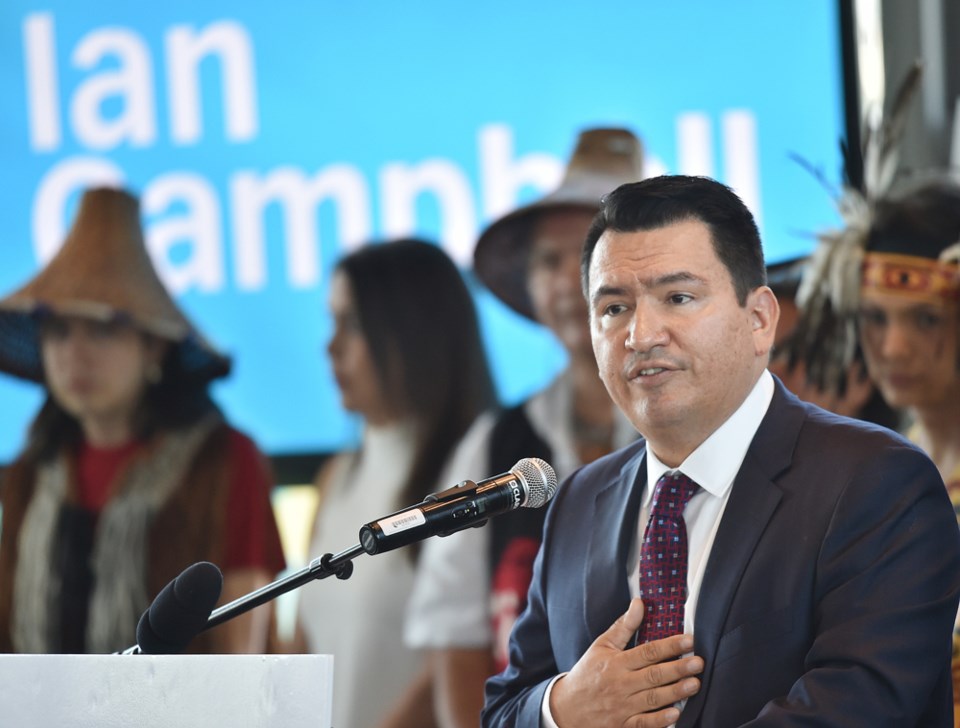The statement released late Monday afternoon by Vision Vancouver mayoral candidate Ian Campbell was as sure a sign the once mighty electoral organization that has led city hall since 2008 is as dead as Polly the Parrot in the famous Monty Python sketch.
Like poor Polly, Vision does not appear to be “just resting.”
With the registration deadline looming, Campbell announced he was quitting as Vision’s mayoral candidate after his lacklustre candidacy failed to connect with the public.
Many, including this writer, asked how a North Vancouver resident could justify running as a mayoral candidate in our city. Campbell, when interviewed by CBC radio, appeared to mortally wound his candidacy by confusing Vancouver’s West End and West Side neighbourhoods.
While Campbell was vague about his motivation for quitting, you can be certain he felt pressure to leave the field to allow voters on the left to coalesce around another candidate.
This is the second Vision Vancouver mayoral candidate to leave the race under unusual circumstances this year — in May, 41-year old Taleeb Noormohamed ended his nomination campaign, citing health reasons.
It is incredible to think how far Vision Vancouver has fallen since it surged to power in 2008. Back then, thousands signed up as members to ultimately support their telegenic leader, Gregor Robertson.
Flush with donations from Americans connected to environmental activism, Robertson was able to first secure Vision’s mayoral nomination and ultimately the seat of power at city hall.
Mayor Gregor, as he came to be known, never sought to represent the whole city. Rather, he and his handlers elevated partisan politics at city hall to new heights, cleaving Vancouver along political lines.
That inability, or unwillingness, of Vision’s leader to make a connection with so much of the city is a huge factor in the party’s demise.
By the end of his second term, Robertson was apologizing and pleading for a do-over. During his third term, city hall watchers were more captivated by his love life on Instagram than any of his policies.
In less than nine months, Vision Vancouver has seen all three candidates who would lead the party into the election walk away. Leaderless and broke, the organization will now almost certainly fade into oblivion.
Shakeups of established elector organizations (EOs) is one of the twists of 2018’s civic election season. Increasingly, we are seeing the consequences of legislative changes that have altered election campaign fundraising rules, and shaved weeks off the election cycle.
As I stated in a November 2017 column, Bill 15 — the Local Elections Campaign Financing Amendment Act (LECFA) — is having wide-ranging impacts on municipal campaigns. Its effects are being most felt in the larger cities such as Surrey and Vancouver, where multiple incumbent mayors and councillors are not seeking re-election.
The bill was rushed into law by the new B.C. government in order to be enacted before the 2018 municipal elections. The loopholes in the legislation were evident from the beginning, even forcing the government to amend the Act by order in council.
In that column, I also predicted that so-called “dark money” (where the source of the funds is never reported publicly) would creep into the campaign, which has borne out. Advertising from a shadowy group called Vancouverites for Affordable Housing began to appear in August.
Minister of Municipal Affairs and Housing Selina Robinson responded to the concern by saying she would look into the matter, but only after the election was over.
Some are keen to note that LECFA puts greater fundraising restrictions on EOs like Vision Vancouver or the NPA than it does on independent candidates. However, if the intention was to eradicate EOs, just the opposite has happened.
Because so few incumbents are running, groups with their own mayor, council, school and park board candidate slates have popped up like mushrooms.
The expected long ballot will surely trigger yet more calls for changes to elections in Vancouver. I can already hear the renewed rumblings for a ward system, which will balkanize the city even further.
While it is too soon to call what impact Campbell’s departure will have on the race for mayor, it finally clears the path for others to form a post-Vision city government.



